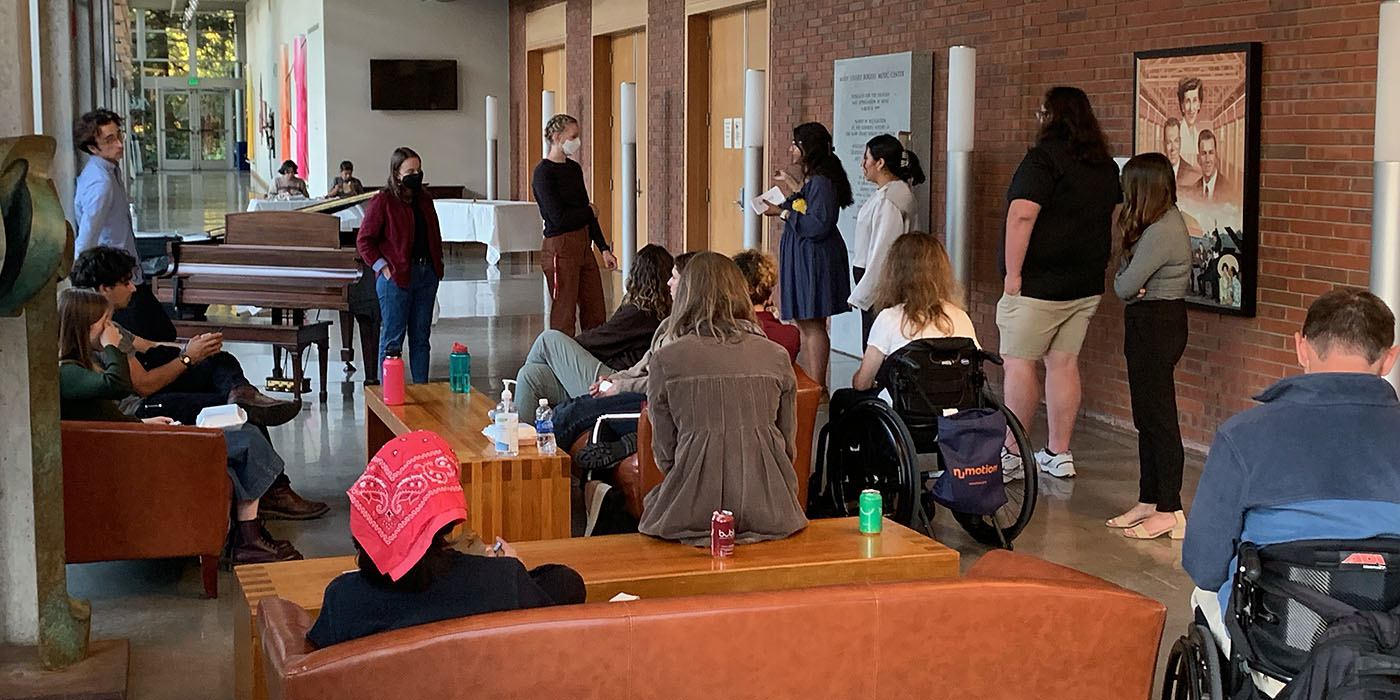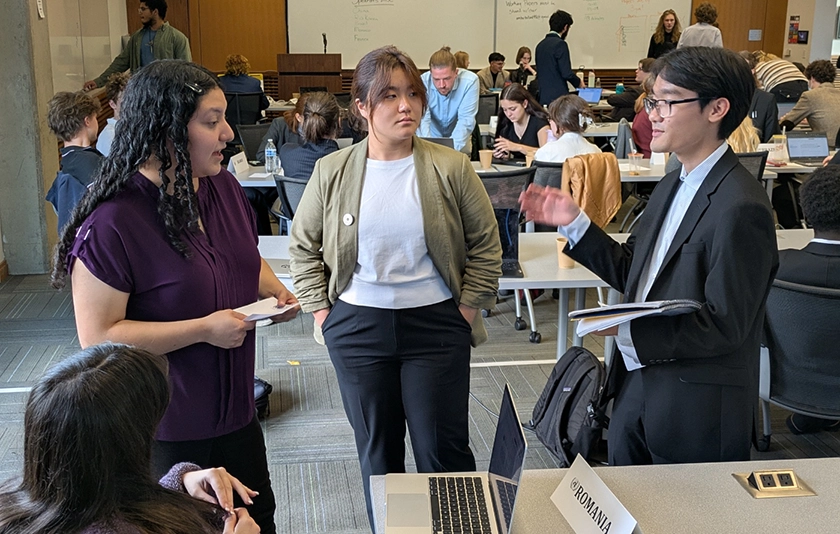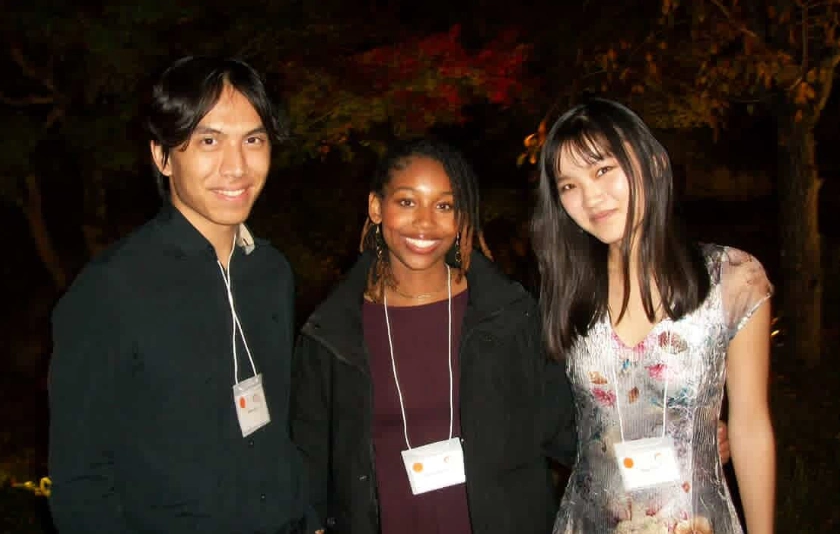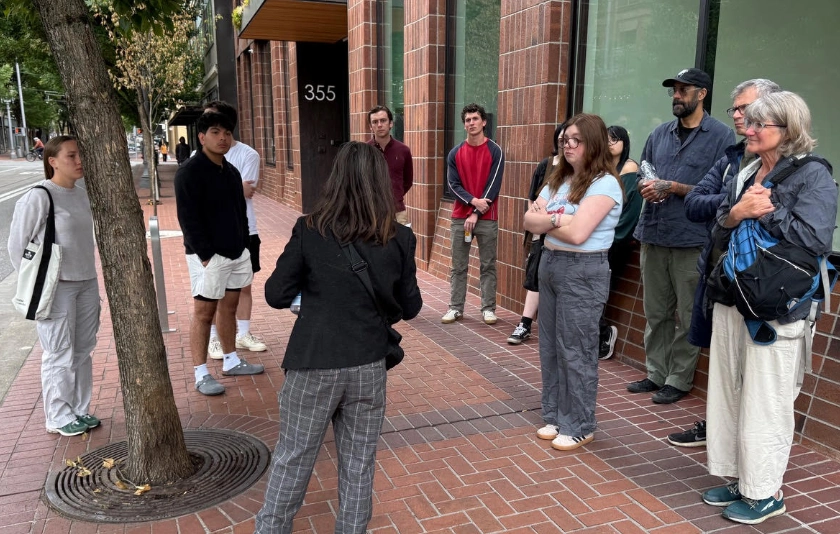How do you get people with different points of view to sit down and talk to each other — and perhaps more importantly, listen to each other — in meaningful ways?
A Willamette student and two professors joined Oregon Public Broadcasting’s Think Out Loud program to address that very question.
In an increasingly polarized world, Willamette University’s Conversation Project is leading the discussion about how to have difficult dialogues across differences. The program is a place where students cultivate the capacity for honest, transformative dialogue. Over the course of two-semesters, students begin by learning interpersonal skills, cultivating curiosity and compassion and honing the ability to listen. Then, they partner with community organizations in Salem and Portland to help facilitate dialogues and difficult conversations.
“We don’t have any spaces in the public sphere where we talk across divides anymore. So we are out of practice,” said Wendy Petersen-Boring, associate professor of history. Petersen-Boring co-founded the Conversation Project with David Gutterman, professor of politics, policy, law and ethics.
Host Dave Miller asked Mira Karthik BA’24, research associate for the Conversation Project, about what first drew her to the program.
“I noticed a shift of energy and anger after the 2016 election,” Karthik said. “Seeing my peers unable to respond in a productive way really was a motivating factor in wanting to learn and find tools to be able to do that.”
Karthik drew on her experiences working on political campaigns where she often came into contact with those who held different views from her own.
“I never thought about listening as a practiced skill that takes patience and effort,” said Karthik. “It’s something that I’ve taken with me in every aspect of my life.”
Gutterman said that one of the motivations for the Conversation Project is to address a sense of loneliness and isolation in public life.
“There’s a longing for connection and belonging,” Gutterman said. “So what we are doing in our work is trying to offer students the tools for social cohesion, the tools for learning how to make connections across political and experiential differences and even to engage in conversations about difficult topics.”
Listen to the full interview on OPB’s website. You can read more about the Conversation Project here.



